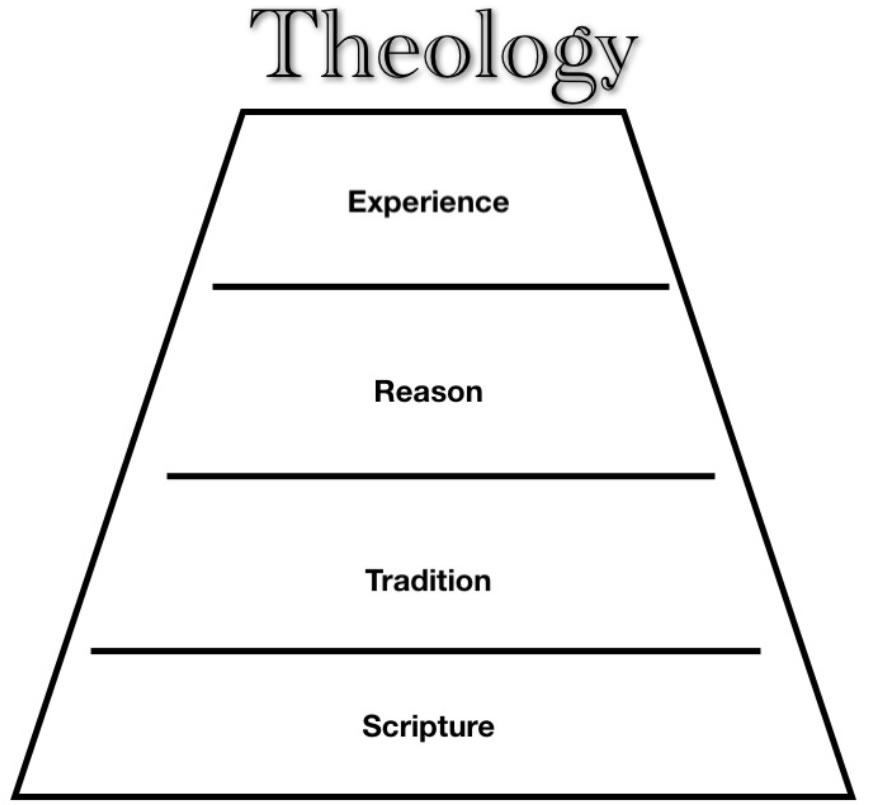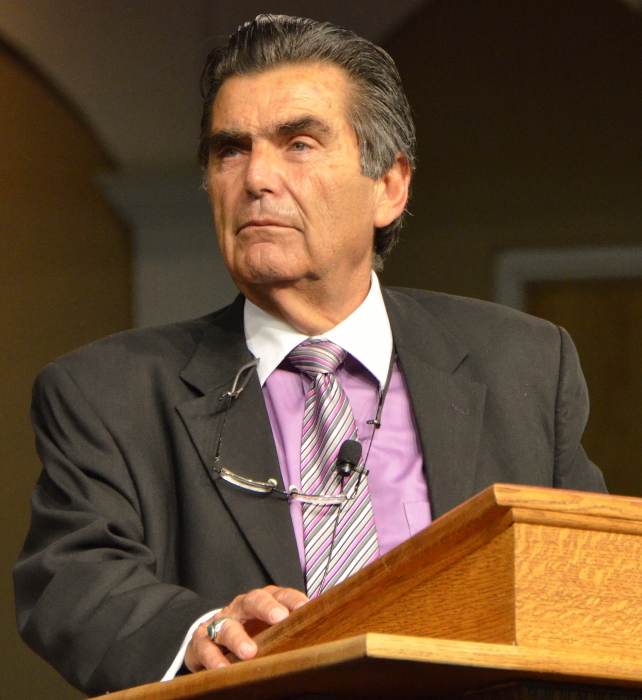by Brother Jed Smock

An often repeated maxim in Christian circles is, “Where the Scriptures speak, we speak. Where the Scriptures are silent we are silent.”
I do not think anyone truly keeps this saying. It is not practical. All men speak beyond the scriptures. However, many refuse to admit to it. I suggest a better aphorism for theological reflection, which has become known as the Wesley Quadrilateral: The core of the Christian doctrine and faith is revealed in Scripture; but our faith is also illumined by tradition, quickened in personal experience of the Holy Spirit, and confirmed by reason. There are paradoxes in scripture that cannot be answered without the use of tradition, experience and reason; all Christians employ them to some extent, whether or not they admit it.
A child or a new Christian should have a strong foundation of scripture study nurtured by parents, pastors and fellow believers. Being a part of a church community is vital! Church history and tradition as revealed through the fathers of the church and the creeds are valuable sources for theological reflection. Regrettably, most Christians are woefully ignorant of the traditions of our fathers established by the long history of Christianity as expressed in different nations and cultures.
The Holy Spirit has spoken through church councils and individuals with prophetic gifts throughout history. He continues to speak today through the experiences of men vivified through the third person of the Trinity. One should not ignore the mystical element of our union with Christ, who communicates through and to each generation of believers.
One of the laws of logic is the law of non-contradiction. Yet, Christians in their appeal to the Bible often contradict themselves. Christian doctrine is in conformity to the laws of reason, or natural law. Self-contradictory doctrines cannot be true. Trying to understand Scriptures independently of reason is folly. God himself is the Logos, which may be translated the Logic. Would he speak contrary to reason?
One problem in appealing to Scripture alone is that the Scriptures were inspired in the context of a particular historical time and place. Paul’s letters often address issues, which were relevant to the primitive church, but not necessarily as pertinent to Christians of our time or place. Sometimes we may not have enough historical information to understand what Paul, Peter, James or John meant. How can we really understand the Bible and the Christian faith and its application to modern life, if we ignore tradition, experience and reason as aids in our understanding of the faith, which was once delivered to the saints of old and continues to be conveyed to us today?
With this in mind, we must understand that reason has limits, because the human mind has been restricted by the fall. When we study history, we often only see in a glass darkly. Furthermore the pride of life is always lurking to try and lead us astray as we gain more knowledge.
In conclusion, scripture, tradition, experience and reason, guided by the Holy Spirit and guarded by a community of believers will keep us on the straight and narrow.

